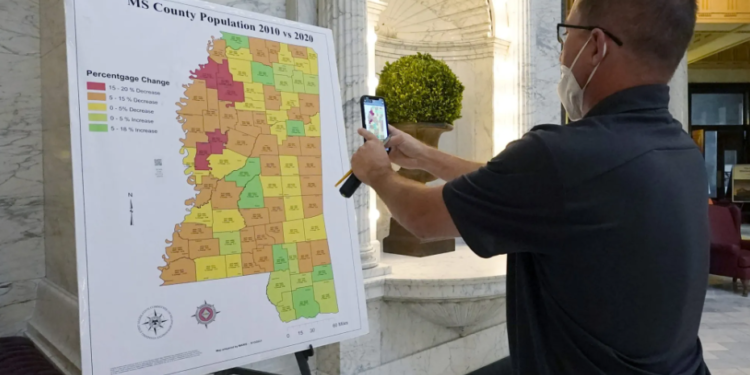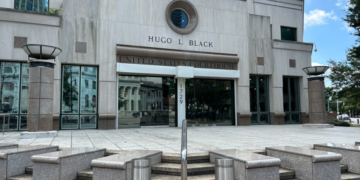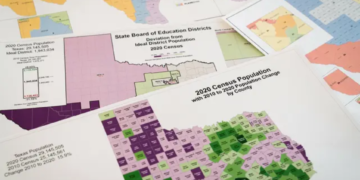Jan 6, 2025 Story by: Editor
As the Mississippi Legislature convenes in 2025, lawmakers will face the crucial task of addressing legislative and judicial redistricting, following court orders and the 2020 U.S. Census data. Additionally, discussions on potential reforms to the state’s youth court system may be included in broader legislative plans.
Legislative Redistricting
When the Mississippi Legislature convenes on January 7, 2025, lawmakers will need to pass a new redistricting map for state lawmakers. A federal court ruling in 2024 found that the state’s current district lines dilute Black voting power, particularly in three districts—two in the Senate and one in the House.
In response to the court’s ruling, the state was initially given until 2025 to redraw the lines. However, following a request from the state election commission for more time, the court allowed the redistricting to occur in 2025.
Mississippi’s current Black population is approximately 38%, with 42 Black-majority districts in the 122-member House (34.4%) and 15 in the 52-member Senate (28.8%).
Impact on Other Legislative Priorities
House Rules Committee Chairman Fred Shanks, R-Brandon, suggested that lawmakers should wait until the end of the 2025 legislative session to address the redistricting. According to court records, the changes could affect more than 25% of the state’s 174 districts.
“We have to have it done this session, of course,” Shanks told the Clarion Ledger. “I know (House Judiciary B Chairman) Kevin (Horan, R-Grenada,) has been working on it. I would say there are so many variables to it … I would wait until the end, and that’s what we did when we redistricted (in 2022).”
Shanks believes lawmakers can focus on other pressing issues, such as tax cuts, Medicaid expansion, and criminal justice bills, before redistricting becomes the focal point.
On the other hand, Senate Accountability, Efficiency, and Transparency Committee Chairman David Parker, R-Olive Branch, argues that addressing redistricting should be the Legislature’s first priority to avoid delays.
Despite differing opinions on timing, both committee chairmen agreed that the redistricting could impact lawmakers’ focus, especially with the potential for re-election races resulting from the new district maps.
“You could have 10-to-14 different senators who are up for reelection this year,” Parker said. “When you have the potential for a primary and a race coming up, sometimes your attention gets shifted, whether you like it or not, a little away from the Capitol and more towards your district.”
Consequences of Failing to Redraw Legislative Lines
If the Legislature fails to agree on a redistricting plan, the responsibility may fall to the federal government, which oversaw Mississippi’s redistricting plans for decades. The 2022 redistricting was the first time since the Voting Rights Act that the state Legislature independently determined its redistricting map.
Judicial Redistricting
Alongside legislative redistricting, the Mississippi Legislature will also need to consider a plan for redrawing the state’s chancery and circuit court districts. State law requires judicial districts to be redrawn five years after the U.S. Census, with the most recent Census conducted in 2020. If lawmakers fail to act, Mississippi Supreme Court Chief Justice Mike Randolph will be tasked with redrawing the districts.
In 2024, Senate Judiciary A Committee Chairman Brice Wiggins, R-Pascagoula, passed a version of judicial redistricting in the Senate, which would have expanded chancery districts by three judge seats, for a total of 55, while reducing circuit districts by one, for a total of 54. However, the bill faced opposition from civil rights groups and some senators, citing concerns that it would diminish Black representation in Delta court districts. The bill ultimately failed in conference.
Potential Reforms to the Youth Court System
Another potential topic tied to the judicial redistricting debate is the reform of Mississippi’s youth court system. A study conducted by a commission of youth court judges has highlighted several foundational issues within the system. One of the proposed solutions is to merge youth courts with chancery courts.
Senator Wiggins indicated that youth court reform may be incorporated into the broader conversation on judicial redistricting.
“I think it is imperative that we look at our court systems, youth court, circuit, chancery court, for all the reasons that we’ve heard last year,” Wiggins said earlier this year.
As lawmakers continue to navigate these complex issues, 2025 promises to be a critical year for Mississippi’s legislative and judicial reform efforts. Source: Yahoo News

















